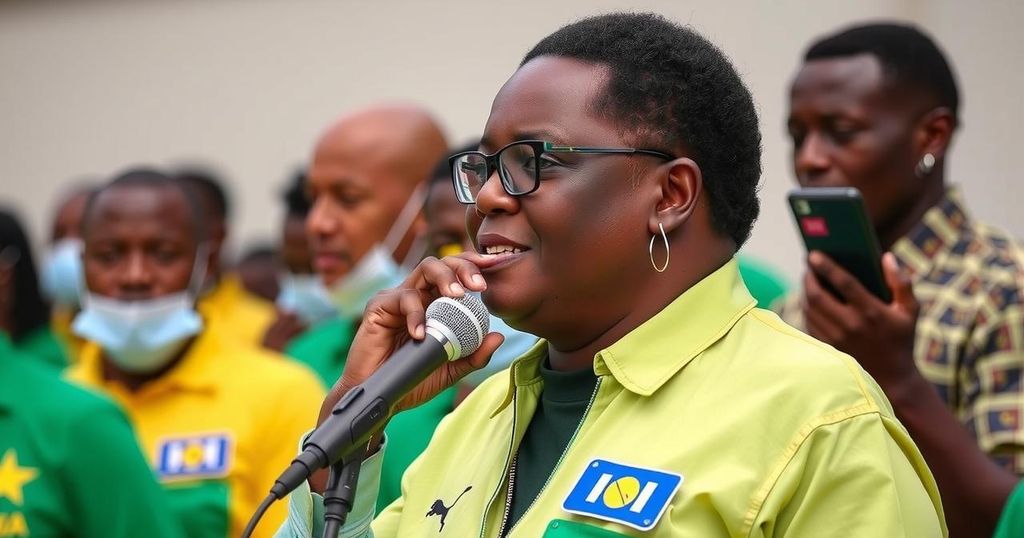Gabon’s military rulers announced overwhelming voter support for a new constitution in a recent referendum, with 91.8 percent backing the initiative. The constitution limits presidential terms, eliminates the prime minister role, and excludes non-Gabonese spouses from candidacy. Amid concerns regarding the legitimacy of the voting process, transitional President Brice Oligui Nguema declared the referendum a major advancement.
Gabon’s military leaders declared that a proposed new constitution has received overwhelming approval in a recent referendum, with provisional results indicating that 91.8 percent of participating voters supported the initiative. The referendum had engaged approximately 860,000 registered voters who faced pressure from authorities via various media to actively participate. The new constitutional framework seeks to impose a limit of two seven-year presidential terms, eliminate the role of prime minister, and prohibit dynastic transfers of power. Voter turnout was reported at 53.54 percent, notably lower than earlier estimates of 71 percent. Notably, the constitution stipulates that presidential candidates must be Gabonese by birth and married to Gabonese nationals, which disqualifies former President Ali Bongo Ondimba. Transitional President Brice Oligui Nguema hailed the referendum as a significant advancement, while reminders of official propaganda during the campaign raised eyebrows, leading some to question whether the referendum was merely a veiled precursor to an upcoming presidential campaign. Citizens expressed mixed sentiments; while some voiced confidence in the junta, critics warned that the updated constitution may serve to consolidate dictatorial power. The final results of the referendum will be announced by the constitutional court.
Gabon has recently experienced significant political upheaval, culminating in a military coup that ousted long-time leader Ali Bongo Ondimba, who had governed for 14 years. This political landscape has created a context where the current military junta seeks to reshape the governance framework through a new constitution aimed at limiting presidential powers and preventing dynastic succession. The referendum for this constitution was undertaken with debates surrounding its implications, particularly regarding the long-term intentions of the transitional leaders and their approach to returning power to civilians. Previous government practices under Bongo’s rule were marred by accusations of corruption and ineffective governance, further complicating the public’s trust and expectations of the new administration.
The recent referendum in Gabon marks a pivotal moment in the country’s political trajectory, with substantial support for a new constitution aimed at establishing term limits for the presidency and ensuring candidates possess Gabonese heritage. Despite a majority approval, concerns about voter turnout and the junta’s influence on the process raise questions about the legitimacy and transparency of this transition. The coming months will be critical as Gabon navigates the implications of its new constitutional framework and the lead-up to the presidential elections scheduled for August 2025. As citizens remain hopeful yet cautious, the successful implementation of this constitution will largely depend on the junta’s commitment to restoring civilian rule and addressing pressing socio-economic issues.
Original Source: www.tiogapublishing.com






